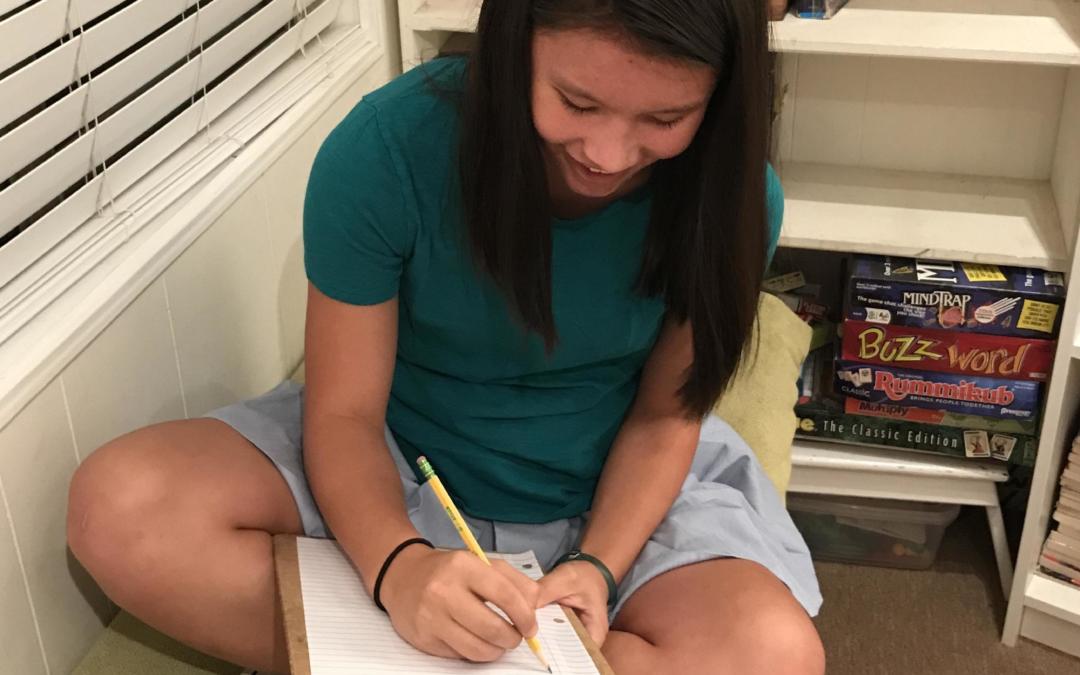by Naomi Kinsman
When I visit a new classroom to work with a fresh batch of writers, at least one will wrap an arm around her work, concealing her words. Similarly, puzzled parents tell me how much their son loves to write, but wonder why he refuses to share his writing with anyone.
Why is this fear of sharing so common?
- Strong writing involves putting one’s heart on the page.
- Most writers have had a less-than-ideal feedback experience, where someone (often accidentally) took the wind out of their sails rather than empowering them.
- The question, “Am I okay?” is only a whisper away from “How’s my writing?”
Someday, these youth writers may choose to send their writing to an editor at a big publishing house. In most cases, they will not receive a response to their first, tenth or even fiftieth submission. Setting aside that reality, let’s tackle the more immediate problem, the one that needs solving today. Youth writers need professional feedback. They need an insightful editor to read their words, to identify the strengths of the piece, as well as the core of what is being communicated, and to help them bring their vision more fully to life.
Through this process, the writing develops, of course, but the heart of the matter is tackling those fears mentioned above. When a writer finds an editor who provides supportive, empowering feedback, that writer internalizes the reality that, yes:
- she has something to say
- he has the capacity to say it well
- she can build on what she’s created and make it even better
As professional writers ourselves, our team of editors are passionate about the craft of writing. We’ve faced down thousands of tangles within our own projects, and have found solutions. Through trial and error, we’ve developed an unshakeable knowledge that every problem has a solution. We’ve invented, discovered, and adapted hundreds of strategies to help us see and shape our work. Possibly most importantly, we’ve all had our share of difficult feedback experiences, which have helped us learn, through personal experience, what kinds of feedback provide momentum, and what kinds of feedback create blocks. Collaborating with youth on their projects is a joy and a privilege.
We’re offering a new way for youth to connect with mentors in our Editorial Letter program. This program offers youth a professional editorial experience, with the option of adding a one-time meeting to take the conversation further.
Do you know a young person who is beginning to find his or her voice? A little nudge is often all it takes, an encouraging educator or parent who says, “Your writing shows promise. What about some pro feedback?” If they’re up for the challenge, send them our way!
Click here to get started.


